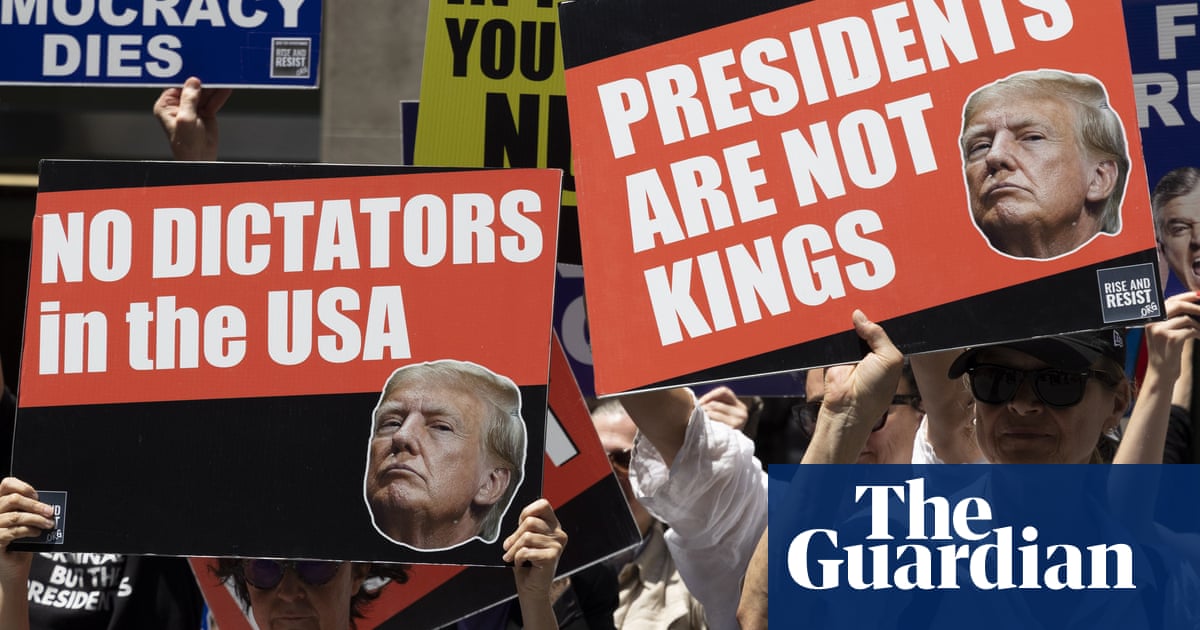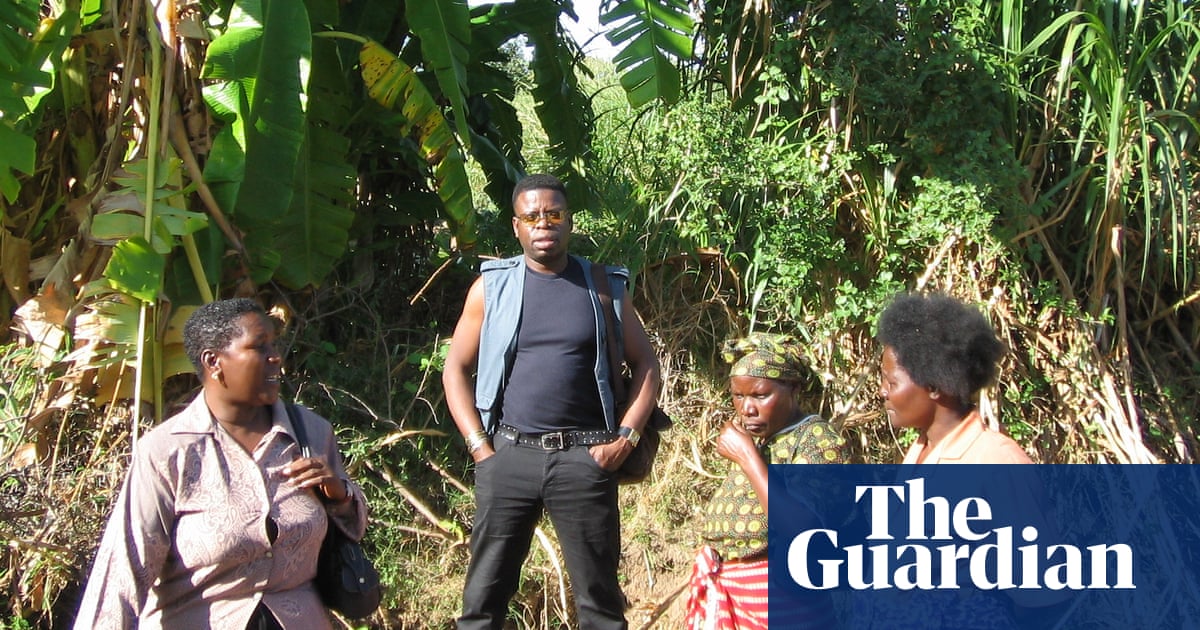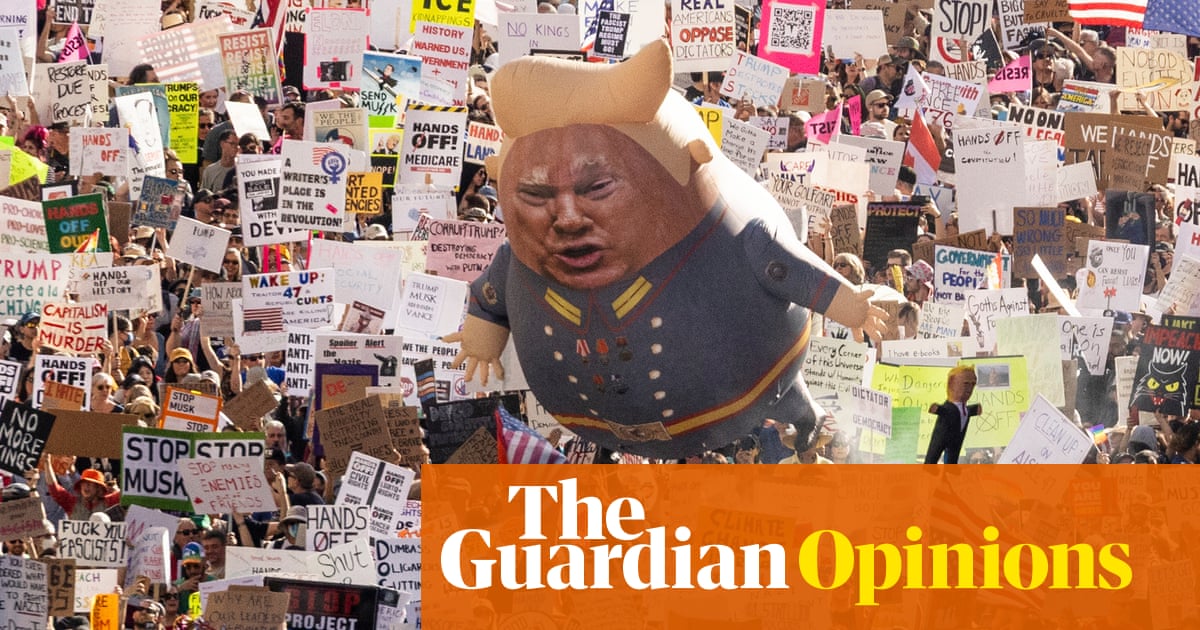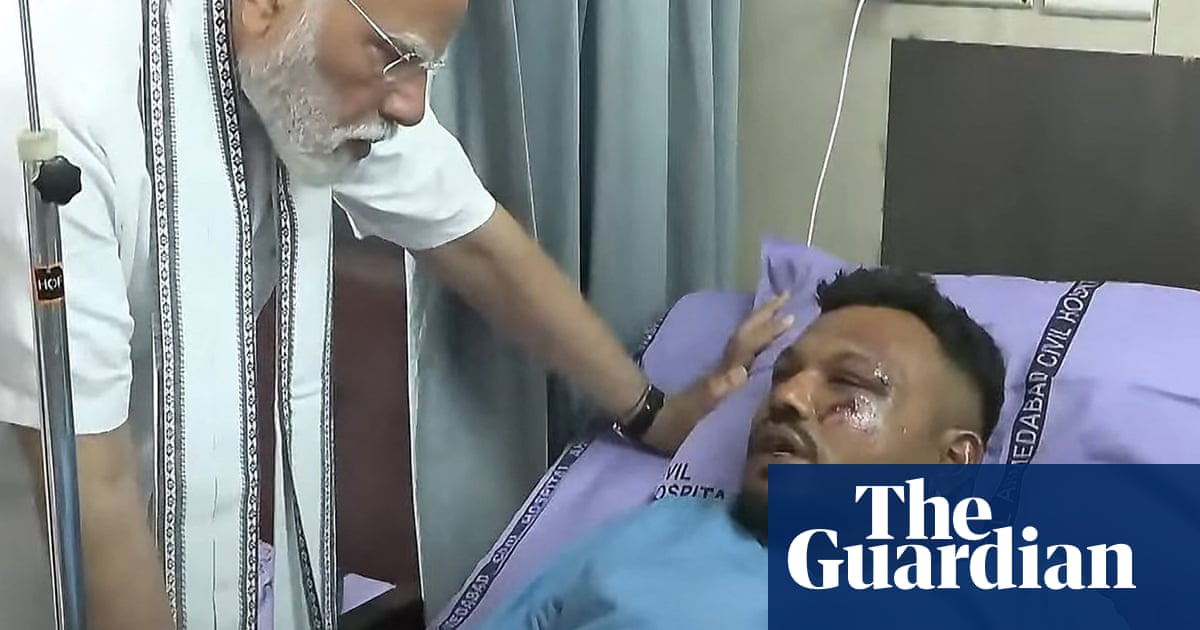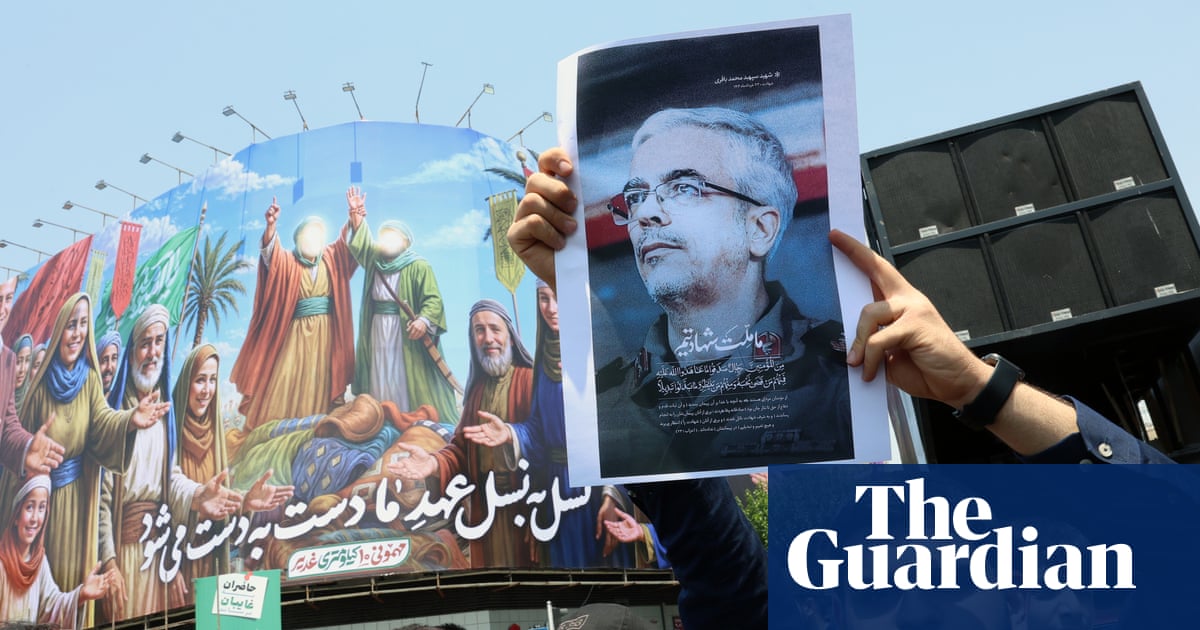A cutting-edge technology expected to foster new medical breakthroughs in treatments for cancers and infectious disease is being treated “like a four-letter word” inside the Trump administration, causing panic among scientists who fear Trump-appointed health officials, driven by misinformation and conspiracy theories about the Covid-19 vaccine, will cut critical research in the field.
Scientists and public health experts interviewed by the Guardian are sounding the alarm over a recent move by the National Institutes of Health to collect information about funding for research into mRNA technology.
Some fear it is the first step in a move to cut or defund grants that involve the technology, which was an essential component in the rapid creation of vaccines against Covid-19, a major accomplishment of the first Trump term in fighting the pandemic.
Messenger RNA technology, which in the case of Covid-19 teaches the body to fight infection by introducing immune cells to the coronavirus’s characteristic spike proteins, is being tested for use against diseases ranging from bird flu and dengue, to pancreatic cancer and melanoma.
While the NIH has not formally stated that it is cutting mRNA vaccine and therapy research, scientists who were interviewed by the Guardian said they have been told informally that the NIH is performing key word searches on grants that mention mRNA vaccine-related technology and related phrases.
“Colleagues have also been advised not to apply for mRNA vaccine grants. This is all through the grapevine. There has not been an official statement about it,” said one New York-based scientist.
The NIH confirmed in a statement to the Guardian that it made a “data call” to learn more information about the funding of mRNA vaccine grants. Nature, the scientific journal, first reported the data call, and said it had been conducted by the acting NIH director Matthew Memoli on 6 March. Scientists were given one day to report the information, and NIH collected information about 130 mRNA grants as a result.
Many of the scientists, public health experts and medical researchers interviewed by the Guardian spoke on the condition of anonymity, fearing that they might be targeted if they expressed concerns publicly.
One former senior NIH official who resigned recently said what was happening inside the organization was “not understandable”.
“So far, any attempt at reasoning with people has fallen on deaf ears. Everything is being run by the department [Department of Health and Human Services] or the White House,” the person said. KFF Health News separately reported that all grants involving mRNA research were to be reported to Memoli, for referral to the office of health secretary Robert F Kennedy Jr and the White House.
Adding to concerns is the administration’s February decision to review a nearly $600m contract between HHS and Moderna, which was set to fund research into potential mRNA vaccines against five flu subtypes, including H5N1 or bird flu.
“mRNA has become the new four letter word. I mean, it’s crazy. It goes beyond just anti-vax,” the person said, referring to the anti-vaccine movement in the US. “It’s about anything associated with the Covid response, which has been weaponized by extreme people in the administration,” the person said.
Paul Offit, director of the vaccine education center and an attending physician at Children’s Hospital of Philadelphia, said he knew of one researcher working on mRNA technology who had their grants “flagged”.
“That doesn’t necessarily mean they won’t get it, but it is worrisome that they might not get it,” he said. “There seems to be a war against mRNA technology. ‘Why?’ is the question.”
Most experts agree that it relates to the politicization of the pandemic and misinformation about the Covid-19 vaccines.
“Prior to the pandemic, even anti-vaccine groups were not focused on mRNA vaccines,” said Dorit Rubinstein Reiss, an expert in vaccine law and professor at the University of California College of Law in San Francisco.
Most prominent among Trump’s vaccine skeptics is Kennedy, the recently confirmed head of HHS. Kennedy criticized mRNA vaccines while he led the anti-vaccine nonprofit Children’s Health Defense. In 2021, the group then led by Kennedy filed a petition to the FDA to revoke emergency approval of Covid-19 vaccines, “because the current risks of serious adverse events or deaths outweigh the benefits”.
Studies later showed that claim was inaccurate. A study by the Commonwealth Fund found that Covid-19 vaccines saved 3.2 million American lives and prevented more than 18 million hospitalizations through November 2022.
Kennedy denied being anti-vaccine in Senate confirmation hearings.
Others promoted into positions of power in the Trump administration also questioned Covid-19 strategies; Dr Jay Bhattacharya, who is expected to be confirmed as the new director of the NIH, and Martin Makary, who has just been confirmed as the new head of the Food and Drug Administration (FDA).
Jonathan Howard, a New York neurologist who closely tracked medical misinformation over the last four years, has been critical of both Bhattacharya and Makary, who Howard has alleged sought to try to convince people that the world overreacted to the Covid-19 pandemic.
Bhattacharya was one of three authors of the Great Barrington Declaration, a statement that argued against Covid-19 lockdowns in favor of so-called herd immunity. Signed in October 2020 on the campus of the right-leaning American Institute for Economic Research, the declaration called for isolating the “old and infirm” and allowing people less vulnerable to death from Covid-19 to socialize.
“Keeping [lockdown] measures in place until a vaccine is available will cause irreparable damage, with the underprivileged disproportionately harmed,” the declaration said. “Those who are not vulnerable should immediately be allowed to resume life as normal.”
The statement was widely criticized for oversimplifying the protection of the vulnerable. Vaccines would become available just two months later, in December 2020.
In a post on X in June 2024, Bhattacharya said he would support pulling the regulatory authorization for the marketing of the Covid mRNA vaccines. While he said he initially hesitated to sign on to a petition calling for the move, he had been convinced that doing so would lead to “good clinical trial evidence testing” to check whether some patient groups still benefit from the vaccine.
Makary is not anti-vaccine, but in June 2021 suggested parents should “think twice” before giving the Covid vaccine to healthy children. In an article he also said he was not aware of a single case of a healthy child who had died of Covid-19. Scientific studies at the time did, however, report that healthy children had died of the virus.
Three experts, including two who have closely monitored the growth of the anti-Covid vaccine movement in the US, said they believed that any opposition to mRNA-related research may influence others under the HHS umbrella, including the FDA, which regulates the approval of drugs and therapies.
“I am sure companies will continue to invest in mRNA research. The key will be whether the FDA will continue to approve mRNA vaccines,” said a former senior NIH official. “That to me is the big question because if there is a concerted effort to erase anything related to mRna vaccines, then obviously support for research is only one aspect. Hopefully, they are not going to do that, but I don’t have much hope for this crowd.”
Another former senior official, who worked on the deployment of the Covid-19 vaccine during the Biden administration, said he had not seen any evidence to suggest that the FDA would take any unilateral position against approval of drugs and therapies that use mRNA technology.
The person pointed to the fact that Dr Peter Marks, who serves as the FDA’s center for biologics evaluation and research, which is responsible for assuring the safety and efficacy of products including vaccines, was still in his job. The former official said he believed Marks would, in effect, serve as a “guardrail” to protect the drug approval process against politicization.
The Guardian asked the FDA about its position on reviewing mRNA vaccines, and whether its position was under review. The Guardian also asked the FDA to comment on concerns among scientists about whether such vaccines will continue to be given approval by the FDA. The FDA did not directly respond to the questions.
It said in a statement: “The FDA is a science-based regulatory agency that evaluates the safety and effectiveness of all products based upon data submitted by sponsors and the totality of the available scientific evidence … The decision to vaccinate is a personal one. People should consult with their healthcare provider to understand their options to get a vaccine and should be informed about the potential risks and benefits associated with vaccines.”
The Guardian contacted Pfizer, Moderna, Merck and PhRMA, the drug industry’s lobbying group, to ask whether the Trump administration’s apparent mistrust of mRNA vaccines was an area of concern. None responded to the Guardian’s questions.
“I don’t know when the shoe is going to drop. As a vaccine researcher we are all extremely nervous about what can happen to research funding,” said the New York scientist who spoke on the condition of anonymity. “There is no Plan B. It is economic madness as well as the elimination of a powerful technology against future pandemics. It is a freaking nightmare.”
Do you have a tip? Please contact Stephanie.Kirchgaessner@theguardian.com or on Signal at 646-886-8761.

 2 months ago
61
2 months ago
61


